The Team

Karyn Rogers is an Assistant Professor in Earth & Environmental Sciences at Rensselaer Polytechnic Institute, where she also directs the Rensselaer Astrobiology Research and Education (RARE) Center. Karyn’s research interests focus largely on habitability in extreme environments. Exploring everything from microbial diversity and activity, to metabolic reaction energetics, and the synthesis of prebiotic molecules in early Earth environments, has included field expeditions around the world, as well as the construction of a state-of-the-art high pressure experimental laboratory group. Recently Karyn’s research group at RPI has been focused on the impacts of elevated pressure on microbial growth and physiology, as well as the synthesis of prebiotic polymers in high temperature, high pressure, and geochemically variable conditions.
More about Dr. Karyn Rogers here.

Morgan Schaller is an Assistant Professor of Earth and Environmental Science at Rensselaer Polytechnic Institute and the Director of the Environmental Sciences Program. Morgan’s interests are broadly in the history of the Earth system and changes in climate over long timescales. Morgan uses light stable isotopes and fluid inclusions to trace the interaction and transfer of elements through the atmosphere, biosphere, and solid earth, specifically linking geologic processes to the history of Earth’s major atmospheric gases. Morgan is credited with demonstrating the atmospheric CO2 effect of a Large Igneous Province eruption (the Central Atlantic Magmatic Province), and discovering the extraterrestrial impact ejecta associated with the climatic event at the Paleocene-Eocene boundary. Morgan’s most recent work has been a new analytical method for determining the concentration of oxygen in the ancient atmosphere using fluid inclusions in soil carbonates.
More about Dr. Morgan Schaller here.
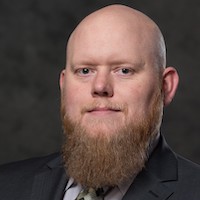
Jacob T. Shelley is the Alan Paul Schulz Career Development Professor of Chemistry and Chemical Biology at Rensselaer Polytechnic Institute. Jake’s current research interests lie in the development of new hardware and software tools for mass spectrometry, which enable rapid and sensitive detection and identification of analytes in complex matrices. His work as part of the project will focus on the characterization of molecular reaction products from abiotic syntheses in the presence of mineral catalysts with ultra-high performance liquid chromatography (UHPLC) coupled to high-resolution mass spectrometry; and on the measurement of spatial distribution of organic reaction products bound or adsorbed on mineral surfaces with mass-spectral imaging techniques, correlated with elemental distributions from laser-induced breakdown spectroscopy (LIBS) measurements.
More about Dr. Jacob T. Shelley here.
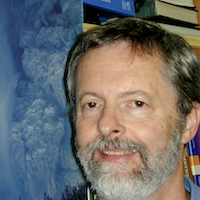
E. Bruce Watson is an Institute Professor of Earth and Environmental Sciences at Rensselaer Polytechnic Institute. Bruce’s research group focuses on chemical phenomena in and on the Earth and terrestrial planets, with emphasis on the outer 100 kilometers of the Earth. His group uses laboratory devices to achieve conditions of elevated pressure and temperature, where they conduct experiments designed to characterize fundamental properties and behavior of planetary materials. Broadly speaking, the goals of their work are to understand the internal workings of the Earth and terrestrial planets through experimentation and modeling, and to provide tools that will allow the team and other geoscientists to "reverse engineer" Earth materials to gain insight into our planet's history. As a long-term member of RPI's Astrobiology Center, Bruce developed a strong focus on characterizing the conditions of earliest Earth (4+ billion year ago) as the stage upon which early life took hold.
More about Dr. E. Bruce Watson here.
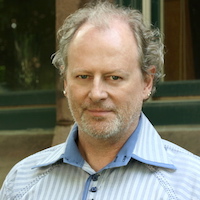
Peter Fox is Tetherless World Constellation Chair, Professor of Earth and Environmental Sciences, Computer Science and Cognitive Science, and Director of the Information Technology and Web Science Program at Rensselaer Polytechnic Institute. Peter’s research includes computational and computer science, data science and analytics, ocean and environmental informatics; and distributed semantic data frameworks. The results are applied to large-scale distributed scientific repositories addressing the full life-cycle of data and information within specific science and engineering disciplines as well as among disciplines. This research program will be expanded to build out the Virtual Early Earth Portal.
More about Dr. Peter Fox here.
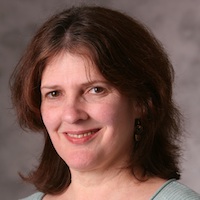
Linda B. McGown is the William Weightman Walker Professor of Chemistry and Chemical Biology at Rensselaer Polytechnic Institute. Linda’s interests include spectroscopic analysis, biomolecular affinity interactions, molecular architecture and biomolecular separations. She enjoys pursuing unconventional pathways to overcoming existing analytical challenges, such as her current work on new approaches to discovery of biological affinity reagents known as "aptamers" based on biological evolution rather than chemical selection. Additional interests include molecular self-assembly, particularly structures known as G-quadruplex DNA that are formed by guanosine compounds, and nucleic acid separation and analysis. Her work in this project centers on plausible pathways to polymerization of biological precursors in early Earth environments and analytical strategies to support investigations of prebiotic chemistry.
More about Dr. Linda B. McGown here.
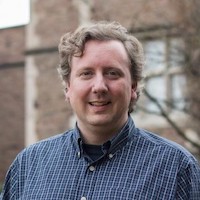
Jeffrey G. Catalano is a Professor of Earth and Planetary Sciences at Washington University in St. Louis and the Executive Editor of Geochimica et Cosmochimica Acta. Jeff's research interests center on chemical reactions at solid-water interfaces, trace metal geochemistry, the formation and transformation of minerals through aqueous processes, and the impact of inorganic processes on biogeochemical element cycling. He combines laboratory experiments, field observations, analytical geochemistry, and synchrotron-based techniques to investigate phenomena of relevance to environmental biogeochemistry, planetary geochemistry, and geobiology. Jeff brings expertise in anoxic formation of clays via alteration of mafic rocks and the interaction of dissolved molecules with mineral surfaces to the search for plausible pathways of prebiotic chemistry on the early Earth.
More about Dr. Jeffrey G. Catalano here.
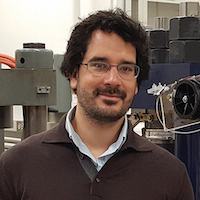
Dustin Trail is an Assistant Professor of Earth and Environmental Sciences at the University of Rochester. Dustin’s research group combines experimental geochemistry, the development of new analytical methods, and field studies to explore the earliest terrestrial crust. His group relies on the analysis rare material preserved from the formative stages of Earth and laboratory experiments that mimic early terrestrial magmas and fluids. Topics include the composition of the crust, the nature and chemistry of its weathered constituents due to early hydrosphere interactions, and the search for the earliest evidence of subaerial continents. These topics have direct relevance for prebiotic reactions.
More about Dr. Dustin Trail here.
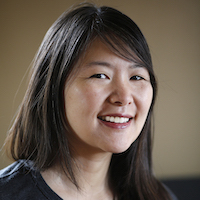
Janet Iwasa is an Assistant Professor in the Biochemistry Department at the University of Utah. Her broad goal is to create accurate and compelling molecular and cellular visualizations that will support research, learning and scientific communication. Janet's award-winning illustrations and animations have appeared in scientific journals including Nature, Science and Cell, as well as in the New York Times. As a postdoctoral fellow, she created a multimedia exhibit on the origins of life with Nobel Laureate Jack Szostak (Harvard University) and the Museum of Science, Boston, and later worked on biological visualizations as a faculty member at Harvard Medical School. She received her Ph.D. in 2006 from the University of California, San Francisco for her work on the actin cytoskeleton in the laboratory of Dyche Mullins, and completed 3D animation training at the Gnomon School of Visual Effects later that same summer.
More about Dr. Janet Iwasa here.
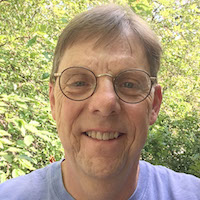
Tom McCollom is a Research Associate in the Laboratory for Atmospheric and Space Physics at the University of Colorado, Boulder. His research interests include the origin of organic compounds in hydrothermal systems, hydrogen generation during serpentinization of ultramafic rocks, chemical energy sources that can support biological organisms on Earth and other planetary bodies, and acid-sulfate alteration of volcanic rocks on Earth and Mars. This research encompasses laboratory experiments, theoretical modeling, and field studies. Dr. McCollom’s contribution to the project will focus on development of laboratory experiments to simulate organic synthesis in early Earth environments.
More about Dr. Tom McCollom here.
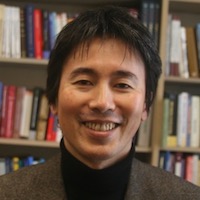
Jun Korenaga is Professor of Geology and Geophysics at Yale University. His long-term research theme is the evolution of Earth as the platform for the emergence of life and its subsequent evolution in the solar system. His emphasis has been on the dynamics of Earth’s mantle, because of its parental nature to the continental and oceanic crust, its interaction with the core, and its role in the evolution of the atmosphere and oceans. His research adopts a holistic, multidisciplinary approach, often involving the development of new observational and theoretical methods along the way. In this project, he will be leading theoretical efforts to characterize the early Earth environment for prebiotic experimentalists.
More about Dr. Jun Korenaga here.
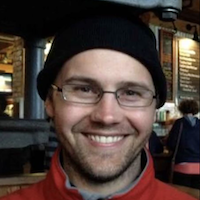
Doug LaRowe is an Associate Research Professor in the Department of Earth Sciences at the University of Southern California. His research is focused on establishing a quantitative link between the activity of microorganisms and the evolution of Earth’s surface. Towards this end, he works with field-based and experimental geochemists, oceanographers, microbiologists, modelers and engineers on projects that span from molecular to global in scale. Doug develops theoretical approaches to evaluate data and applies computational models to a variety of natural systems that utilize a multitude of data sets. As a result, his research has involved shallow and deep marine hydrothermal systems, marine sediments, oceanic basement crust, the terrestrial deep biosphere, deep ocean waters and Mars.
More about Dr. Doug LaRowe here.
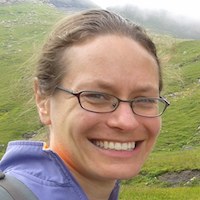
Susan Q. Lang is an Assistant Professor in the School of the Earth, Ocean, and Environment at the University of South Carolina. Her research focuses on the interactions between water, rocks, and microorganisms. She uses organic molecules and their isotopes (13C, 14C, 2H, 18O) to identify abiotically synthesized organic compounds and to identify microbial activity in the rocky subsurface of the oceans and continents. She is particularly focused on developing new methods for characterizing the new suites of compounds from the environment.
More about Dr. Susan Q. Lang here.
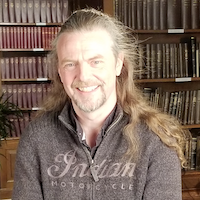
Andrew Steele is a Staff Research Scientist in the Geophysical Laboratory at the Carnegie Institution for Science. His research focuses on developing scientific and measurement criteria for the unambiguous detection of life in early Earth and Mars samples and future robotic and sample return missions to Mars, Europa, and Enceladus. This multi-pronged approach uses a diverse range of techniques and samples coupled with development and testing of instrumentation for future Mars missions and the characterization of data from space flight missions to Earth orbit, Mars and Comets. Recent research avenues further include an exploration of the reactions that could lead to the transition of abiotic chemistry to prebiotic chemistry and eventually to life. This involves both a bioinformatics approach to better understand the nature of protein-nucleic acid interactions that could have led to the first prebiotic molecular constructs, as well as laboratory experiments that shed light on the origin and nature of interactions among heterogenous prebiotic molecules.
More about Dr. Andrew Steele here.

Aaron Goldman's research revolves around protein and proteome evolution with a special focus on early cellular life and the emergence of ancient metabolic systems. He received a Ph.D. in Microbiology and a graduate certificate in Astrobiology from the University of Washington in 2010 where he worked with Ram Samudrala and John Baross on computational methods to study the early evolution of the translation system and and metabolic networks. He then worked as a NASA Postdoctoral Fellow in Laura Landweber's lab at Princeton University, where he developed LUCApedia, a database that facilitates research on the Last Universal Common Ancestor (LUCA) and its predecessors. Currently he is an assistant professor at Oberlin College, where his lab continues to research the evolution of ancient protein families and the genome and proteome of LUCA.
More about Dr. Aaron Goldman here.